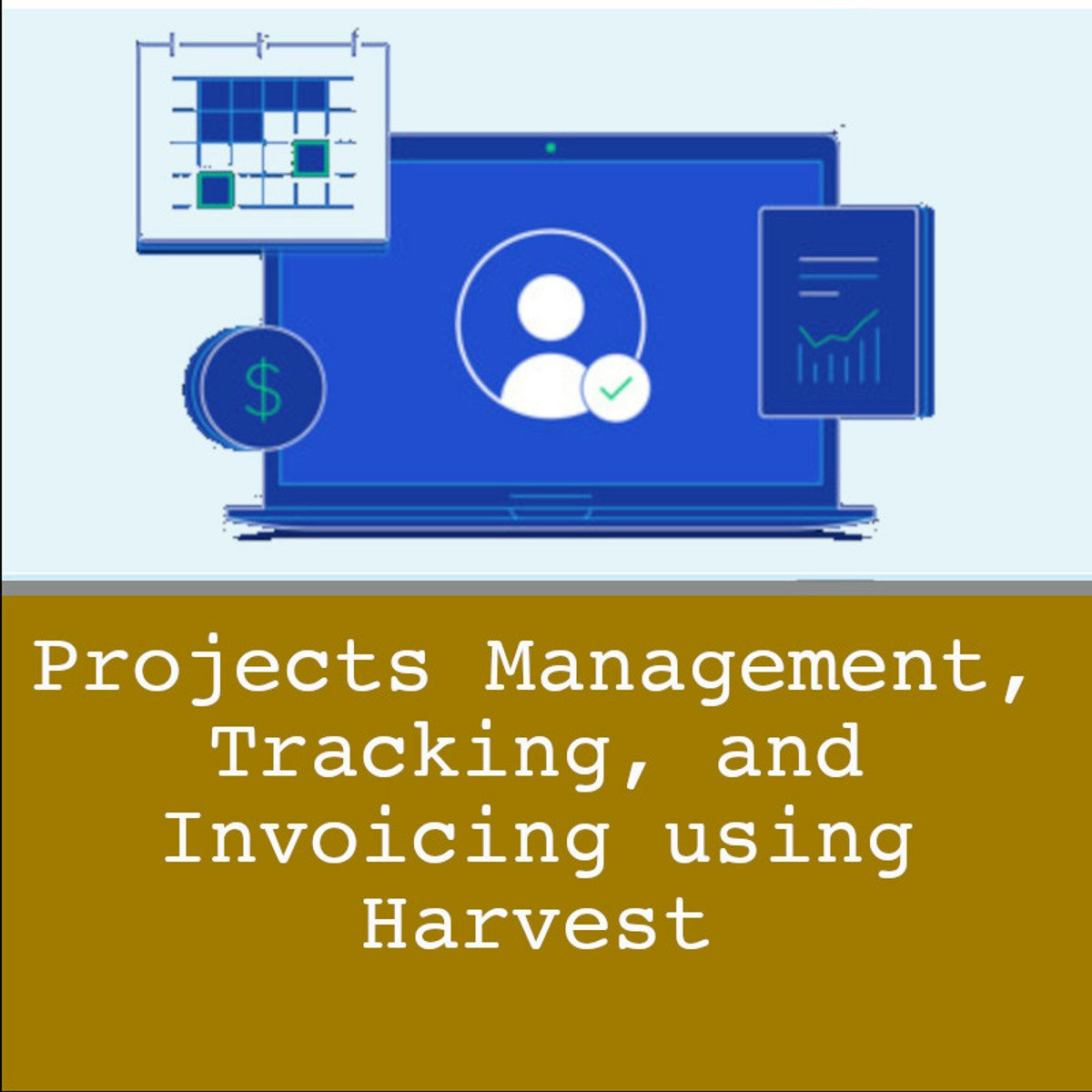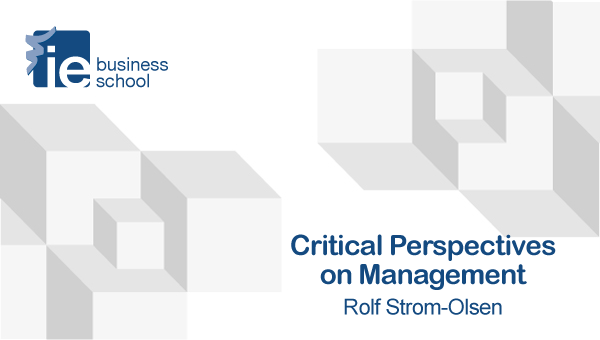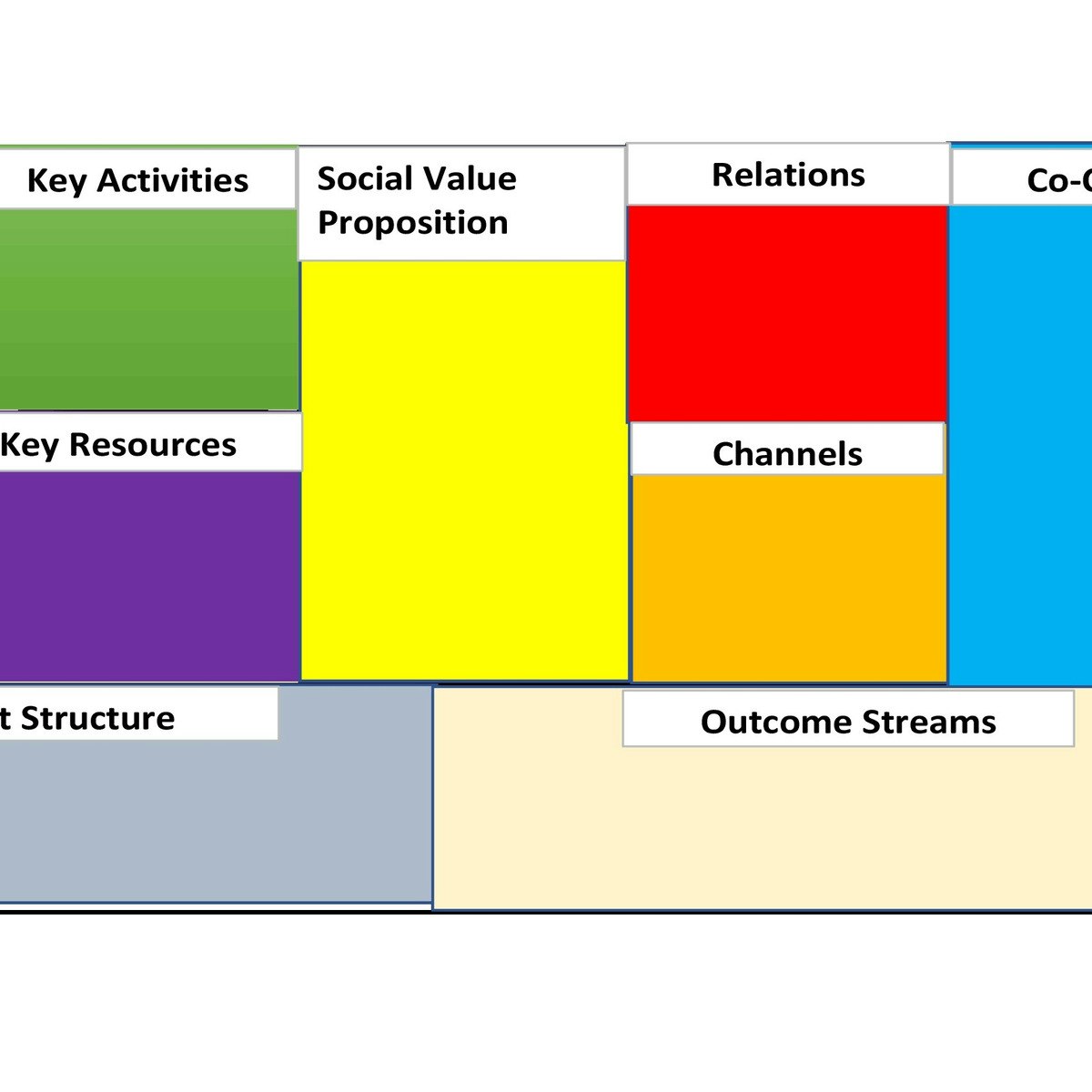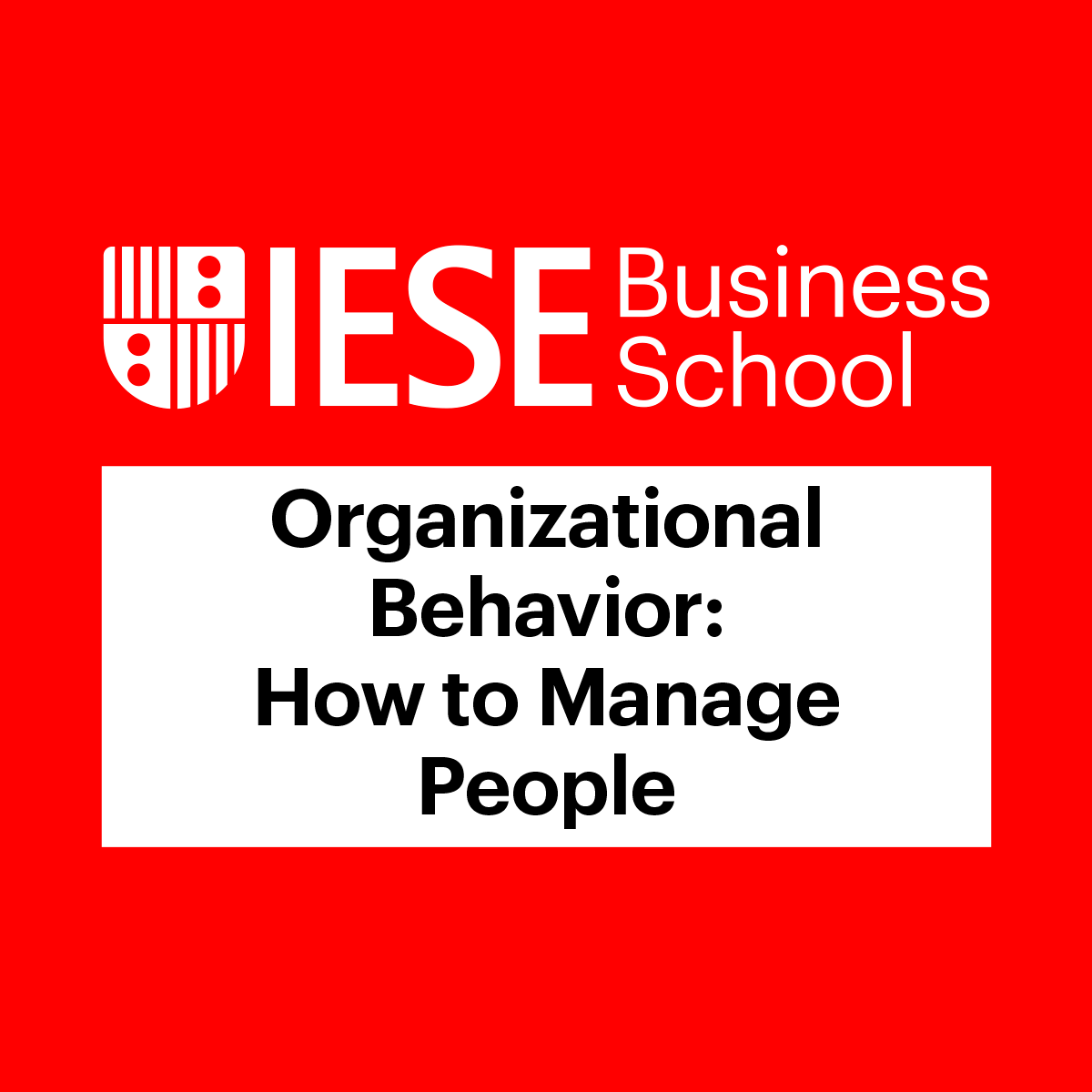Back to Courses









Leadership And Management Courses - Page 41
Showing results 401-410 of 600

Project Management: Beyond planning and control
Project Management is a fundamental theme to understand and work in any business environments. Projects are the organizational way to make innovation happen and to realize any kind of custom solution or to change how an organization work. Project Management is the set of capabilities, skills and tools to properly work on projects. The course aims to define the concept of a project and to show how, in the management of a successful business, project management and process management must coexist and integrate. During the course the project is analyzed as a managerial tool for the management of change and innovation and its links with the company strategy are emphasized.

Master Class for Corporate Entrepreneurs
The Master Class experience is designed to serve as the final project experience for the Corporate Entrepreneurship Specialization. Alternatively, professionals with experience in opportunity analysis, business modeling, and corporate finance are invited to complete the Master Class experience without the preliminary courses.
With maturing technologies and aging product portfolios requiring established companies to create, develop, and sustain innovative new businesses, graduates of the Master Class will develop an understanding of how to create new businesses and initiatives within the corporate environment. In collaboration with our award-winning faculty, and a vibrant peer group, learners will explore and apply the skills, tools, and best practices for:
• Identifying and developing the entrepreneurial opportunities;
• Building business models;
• Creating strategies for leading innovation; and
• Financing and profiting from innovation.
The Master Class experience is differentiated from typical Coursera courses and MOOCs in that our faculty and staff are actively engaged with learners by providing individual feedback on assignments. Our faculty and staff will review and offer feedback on the major assignment submissions, if you wish, in an effort to assist you in developing and launching your corporate ventures.
Try this course for FREE at https://www.coursera.org/learn/corporate-entrepreneurship-project

Create a Project Charter with Microsoft Word
The main purpose of a project charter is to have consensus around project objectives, activities, schedule, potential risks, and budget. A project manager will develop the charter to start the project and get approval from a project sponsor. Having a project charter will help to keep you organized and on track to implement the project management process that will lead to a successful project. The project charter helps to make sure anyone involved understands the project through the scope, objectives, deliverables and more. This project will lead you through the development of a project charter using Microsoft Word.

Projects Management, Tracking, and Invoicing using Harvest
In this 1-hour long project-based course, you will create projects on Harvest, track their time and expenses, generate reports and invoice your clients.

Critical Perspectives on Management
This course is designed for students of all backgrounds who have an interest in how firms are governed, the forces that have helped define modern management practice, and the outcomes of that practice not only for the firm itself, but also for the societies in which they operate. For students who are thinking of a career in management, it may also prove useful as a basic introduction to some of the conceptual vocabulary and ideas behind modern theories of management.
Using a wide disciplinary approach - from economics and history to social theory and even a smattering of biblical criticism - the course will invite students to consider several core management strategies and priorities from often unexpected perspectives in order to judge their success or failure. The key objective of the course is to bring into critical focus how we think about the function and culture of management, how managers understand their role within a firm, how they take decisions, set priorities and benchmark success and failure.
Topics include: the function of the firm; the role of incentive; the ways in which narrative forces shape decision making, and how market relationships define the managerial culture in ways that can lead to sub-optimal outcomes.

NGO Startup Analysis with Nonprofit Business Model Canvas
By the end of this guided project, you will be able to use the Nonprofit Business Model Canvas to create, deliver, and capture value for your Non-Governmental Organization (NGO). The canvas serves as a blueprint to help you to design, and operationalize your idea in a more systematic approach. The Canvas is 9-block visualization tool derived from the popular Business Model Canvas, but modified to fit into the NGO context. Essentially, the canvas helps you and your team to answer pertinent questions relating to strategic decision-making, allocation of resources, or developing proposal for grants. Because the canvas makes it easy for you to share ideas and solicit feedback, it’s therefore a quick communicate and strategic planning tool.
For us to practically demonstrate how to use the Nonprofit Business Model Canvas to conduct analysis and make informed decisions, we will use a spreadsheet to analyze an NGO startup as a case study. Example of the case study would empower you to apply the model to your organization or any other NGO of your choice. The project is for social entrepreneurs who want to make positive impact on the lives of others. Also, for social investors or donors that want to understand the operations of an NGO. At the end of the project, you will be able to use the canvas to creates and delivers value for your beneficiaries and other stakeholders

Developing a Google SRE Culture
In many IT organizations, incentives are not aligned between developers, who strive for agility, and operators, who focus on stability. Site reliability engineering, or SRE, is how Google aligns incentives between development and operations and does mission-critical production support. Adoption of SRE cultural and technical practices can help improve collaboration between the business and IT. This course introduces key practices of Google SRE and the important role IT and business leaders play in the success of SRE organizational adoption.
Primary audience:
IT leaders and business leaders who are interested in embracing SRE philosophy. Roles include, but are not limited to CTO, IT director/manager, engineering VP/director/manager.
Secondary audience:
Other product and IT roles such as operations managers or engineers, software engineers, service managers, or product managers may also find this content useful as an introduction to SRE.

Agile Organization
The theory of Agile is simple. However, it takes experience, knowledge, and expertise to scale it successfully.
In this course, you will focus on leading change at an organizational level and scaling Agile appropriately.
When studying Agile application success stories and theory, it's easy to think in terms of adopting "best practices." However, what's best for one industry, company, and most importantly, culture is not always the best for another. Not every aspect of the business is suitable for the application of Agile. Not every organization will benefit from adopting Agile, and not every leader will facilitate yet another change to success.
In this course, you will be introduced to seven different change management theories and learn how to best use and apply them in practice. You will also learn how to scale Agile in your organization, what to look for when looking for best use cases, and what signs serve as clear indicators that Agile is not an appropriate philosophy to apply.

Organizational Behavior: How to Manage People
Peter Drucker, a pioneer in the field of management, once said that people have a perverse tendency to behave like human beings. Of course, we are not machines, and certainly not programmable. But through the study of organizational behavior, we can gain insights into what makes people tick within a work context. Increasing your understanding of your own behavior and that of your colleagues, teams and leaders, is an important first step to bringing positive change to how you and your organization work.
The objective of this course is therefore to provide insight into four key areas:
• Motivation. In this course segment we will understand the concept of motivation and review various perspectives that will help you understand how we can motivate others.
• Leadership. In this part of the course, we will analyze the concept of leadership and consider various perspectives and approaches to help shed light on leadership emergence and effectiveness.
• Teamwork. Here we look at team functioning and effectiveness. Using the widely used input – process – output model of team effectiveness, we consider such topics as team diversity, team processes, and team outcomes.
• Culture. Finally, we'll move to the level of the organization and consider the concept of organizational culture, also touching upon the concept of national culture. We look at the various ways in which culture is expressed, and discuss the implications of culture for people within organizations and cross-cultural collaborations.

Managerial Accounting Fundamentals
This course, developed at the Darden School of Business at the University of Virginia and taught by top-ranked faculty, will teach you the fundamentals of managerial accounting including how to navigate the financial and related information managers need to help them make decisions. You'll learn about cost behavior and cost allocation systems, how to conduct cost-volume-profit analysis, and how to determine if costs and benefits are relevant to your decisions.
By the end of this course, you will be able to:
- Describe different types of costs and how they are represented graphically
- Conduct cost-volume-profit analyses to answer questions around breaking even and generating profit
- Calculate and allocate overhead rates within both traditional and activity-based cost allocation systems
- Distinguish costs and benefits that are relevant from those that are irrelevant for a given management decision
- Determine a reasonable course of action, given the financial impact, for a given management decision
Popular Internships and Jobs by Categories
Browse
© 2024 BoostGrad | All rights reserved


